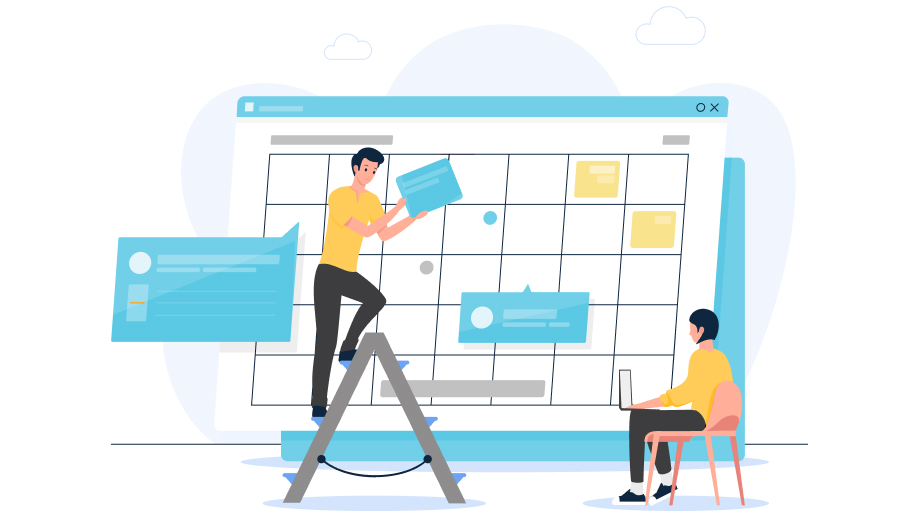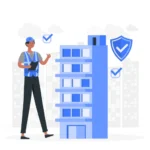Managing a portfolio of facilities is a complex undertaking requiring coordination across multiple processes. The right facilities management software is critical for driving operational efficiency at scale.
The complexity grows exponentially when you’re responsible for an entire portfolio of facilities. Office parks, hospitals, college campuses, industrial plants, and retail spaces – each present unique operational challenges. Inefficient facilities management leads to excessive costs, wasted time, regulatory risks, and a degraded occupant experience.

This high-stakes environment demands robust facility management software. The right solution acts as a central command center – consolidating data, automating processes, enforcing procedures, and providing visibility across all aspects of operations. It replaces cumbersome manual tasks and siloed spreadsheets with an integrated digital framework.
To combat this, your business staff need the ability to complete tasks like facility inspections, work order intake, and data capture from the field using mobile apps. The software should allow for geospatial visualization of key operational data points. Integration capabilities are crucial for connecting to other core business systems.
Investing in the right facilities management software platform pays off. Organizations gain operational control, reduce costs, minimize risks, and deliver an exceptional workplace experience. As facility portfolios grow larger and more complex, this digital capability is quickly becoming indispensable.
A recent report from Grand View Research projects the global facility management market size will reach $1.49 trillion by 2030, registering a CAGR of 5.8% driven by factors like increasing construction activities and the need to reduce operating costs. With the stakes so high, facility managers must invest in a robust software platform with the right feature set.
Here are seven essential capabilities to look for in your facilities management software
1. Mobile Data Collection
In today’s on-the-go workplace, facility managers need to be able to access and input data from anywhere. A mobile app for completing inspections, logging maintenance requests, capturing photos/videos, and accessing asset information is critical.
According to a 2021 study by TrackVia, 83% of facility operations managers cited remote monitoring capabilities enabled by mobile apps as a high-priority investment area. Mobile access allows staff to work more efficiently and gather richer data out in the field.
2. Preventative Maintenance Planning
Maintaining capital-intensive assets like HVAC systems, manufacturing equipment, vehicles and more requires a preventative maintenance program. Superior facilities management software allows you to plan PM schedules based on time, usage, or meter readings and get automated reminders when service is due. This planned maintenance approach maximizes asset lifespans and prevents costly downtime.
The U.S. Department of Energy estimates a robust preventative maintenance program can provide 12-18% cost savings over reactive maintenance. On a $1 million operating budget, that represents $120K-$180K in savings.
3. Field Time Tracking
Effectively managing a mobile, distributed workforce is a major challenge for facility management operations. Having an automated field time tracking capability built into the software is crucial for ensuring accurate labor costs, payroll, and client billing.
The right solution allows field employees to seamlessly clock in/out from their mobile devices when arriving and departing job sites. They can log hours worked against specific projects, work orders, preventative maintenance tasks, and more with a few taps. Additional details like break times, job codes, notes, and even multimedia attachments can be captured as well.
This automated field time capture eliminates the need for manual timesheets, providing a complete audit trail of when and where work occurred. It reduces payroll errors, ensures fair compensation for employees, and provides the data needed for precise labor costing and service billing back to clients or departments.
4. Geofencing
Geofencing allows you to set virtual geographic boundaries and receive alerts when field employees, assets, or personnel enter or exit those areas. This enhances security, improves operational awareness, and streamlines time tracking and task assignment.
With geofencing, field employees can automatically clock in/out based on their location without any manual entry required. Their time and attendance are effortlessly captured when they arrive at or depart from a job site.
Additionally, geofencing enables you to map tasks and work orders to specific locations. When an employee enters the geofenced area, the system can automatically assign them the relevant tasks and provide access to associated asset information or instructions.
This automated location intelligence eliminates manual processes while ensuring employees are accurately tracked and deployed to the right place.
5. Reporting and Analytics
Facility management generates a wealth of data across areas like maintenance, inspections, energy consumption, space utilization, and more. A reporting and analytics module with customizable dashboards allows you to gain visibility into key metrics and identify areas for optimization.
For example, you may uncover opportunities to reduce energy costs through data-driven utility management.
According to an EMS Software report, facilities that implemented energy management analytics achieved a 10-20% reduction in energy costs within 9-15 months.
6. Field Labor Compliance
Facility management operations often involve contractors and third-party vendors working on-site. Superior software platforms provide capabilities for ensuring compliance with labor regulations, safety protocols, and service level agreements (SLAs). This includes features like electronic time tracking, automated policy enforcement, and audit trails.
Proper field labor compliance mitigates risks around workplace incidents, labor disputes, and contractual penalties. It also promotes a safer, more productive environment for your workforce.
7. Integration Capabilities
No facilities management software is an island – it needs to connect with other core business systems like payroll, CRM, ERP/accounting, and more. An open API and pre-built integration marketplace allow you to create that connected ecosystem and streamline data flows across your tech stack. For example, syncing work order data with your accounting system ensures accurate expense tracking for service costs.
A study by Coherent Market Insights forecasts the integrated facility management market will grow at 13% CAGR from 2022 to 2030 as organizations recognize the value of connected facility operations.
Conclusion: The Right Software Matters
Choosing the right facilities management software is crucial for efficiency and cost-effectiveness. Prioritizing features like field data collection, lone work safety, and integration capabilities streamlines processes and enhances decision-making.
allGeo by Abaqus is an enterprise-grade solution tailored for mid and enterprise businesses. It offers comprehensive solutions including scheduling, monitoring, mobile data collection, and reporting. With seamless integration and versatility across industries, allGeo enables organizations to achieve operational excellence effortlessly.
Investing in robust facilities management software like allGeo is essential for driving sustainable growth and competitive advantage in today’s dynamic business environment.


